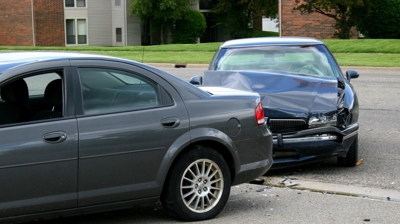
The Role of Dash Cam Footage in Florida Auto Accident Claims
Dash cam technology has become one of the most powerful tools for drivers in Florida. Beyond capturing scenic road trips, it can make all the difference after an accident — providing critical evidence that helps prove fault, strengthen insurance claims, and protect your rights.
If you’ve been injured in a Florida car or truck accident, a skilled auto accident attorney can help you use dash cam footage strategically to support your case. Here’s how this technology can play a pivotal role in your claim.
How Dash Cam Footage Can Strengthen Your Florida Accident Claim
Proving Fault with Clear Video Evidence
Dash cams record every moment leading up to a crash — the behavior of other drivers, road conditions, and traffic patterns. This footage can:
- Show the sequence of events to establish fault
- Capture reckless driving, such as speeding or illegal lane changes
- Document road hazards, poor visibility, or unsafe maneuvers
For example, if another driver ran a red light and caused a collision, dash cam footage could clearly demonstrate their negligence.
Supporting Your Insurance Claim
Insurance companies often challenge or downplay accident claims to minimize payouts. Dash cam footage provides an unbiased, time-stamped record of what actually happened — helping prevent disputes and ensuring your version of events is supported by clear evidence.
Protecting Yourself Against False or Exaggerated Claims
Unfortunately, not every driver is honest after an accident. Dash cam footage acts as an impartial witness, protecting you from false accusations or exaggerated damage claims.
If another driver insists you were speeding or at fault, your footage can prove otherwise.
Assisting Law Enforcement
Dash cam video also assists police and investigators by providing real-time visuals of the incident. This evidence helps law enforcement determine fault, document the crash accurately, and create a reliable official report — all of which strengthen your personal injury claim.
Are Dash Cams Legal in Florida?
Yes, dash cams are legal in Florida as long as they don’t obstruct your view while driving. However, Florida is a two-party consent state under §934.03 of the Florida Statutes, meaning you generally need permission to record audio of other people. Recording video on public roads is legal and often encouraged to promote safety and accountability.
If you’re unsure about what type of recording is permitted, your attorney can guide you on how to use your footage safely and legally.
Dash Cam Evidence in Tampa Bay and Across Florida
From Tampa to Clearwater, Pasco, Hernando, and Pinellas Counties, dash cam evidence often plays a crucial role in Florida accident investigations.
Courts and insurance companies regularly rely on this footage to determine fault, confirm driver behavior, and assess damages.
The Tampa car accident lawyers at Kemp Law Group know how to collect, preserve, and present your footage effectively — ensuring it helps your case rather than hurting it.
How to Use Dash Cam Footage Effectively
- Preserve the Footage: Save and back up the video immediately after your accident.
- Ensure Quality: Use high-resolution settings and ensure the camera captures clear visuals.
- Consult an Attorney: Your lawyer can analyze your footage and determine how it fits into your legal strategy.
A knowledgeable attorney can also handle communications with insurers, protect your rights, and ensure you meet Florida’s strict deadlines for filing a claim.
Speak With a Florida Accident Lawyer
Dash cam footage can make or break your claim — but only if used correctly. At Kemp Law Group, our attorneys have extensive experience handling Florida auto and truck accident cases where dash cam evidence played a key role.
We’ll review your footage, gather supporting evidence, and fight for full compensation for your medical bills, property damage, and emotional distress.
Call, text, or contact us online today for a free consultation and let us help you navigate your next steps after an accident.
Frequently Asked Questions
Can dash cam footage be used in court in Florida?
Yes. As long as the footage is relevant and authentic, Florida courts typically allow it as evidence in accident and injury cases.
Does having a dash cam lower insurance rates?
While not all insurers offer discounts, some companies may view dash cams favorably since they help resolve claims faster and discourage fraud.
Can dash cam footage show who’s at fault?
Yes — it can capture traffic violations, unsafe driving, or other key details that clarify who caused the crash.
Helpful Resources






